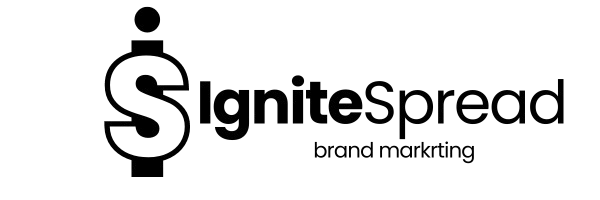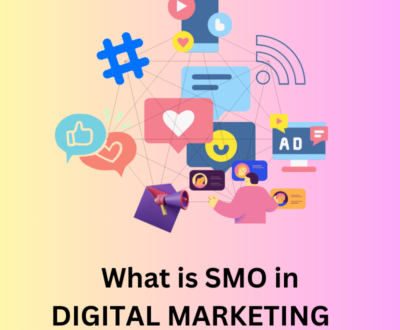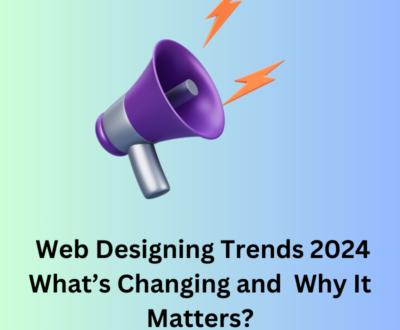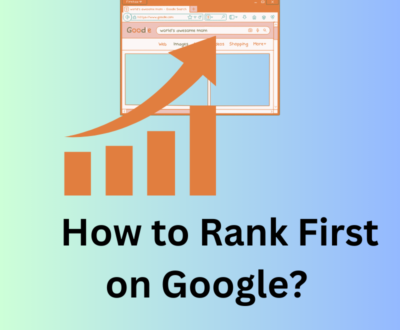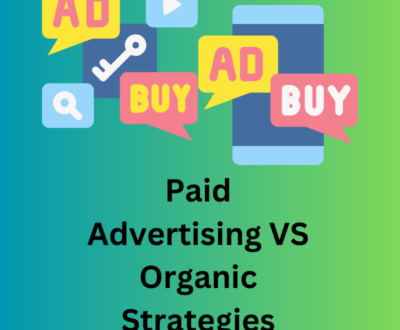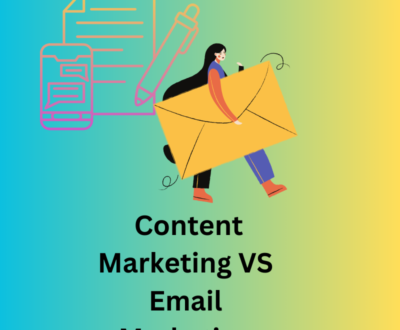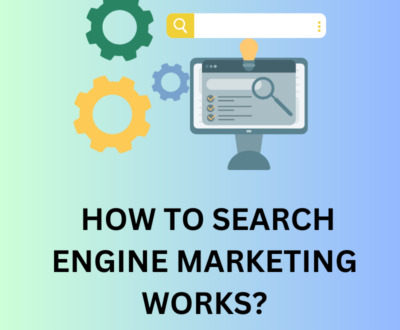Website VS Social Media: Which is Better for Your Personal Brand?
- September 16, 2024
- Uncategorized
No Comments
Website: Building Your Digital Home
Advantages:
- Complete Control: A Website VS Social Media allows you to fully control the design, content, and user experience, ensuring that your brand is represented exactly how you want it to be.
- Professional Image: Having a well-designed website enhances your professionalism and credibility.
- Central Hub: Your website can act as a central hub for all your online activities, integrating your blog, portfolio, contact information, and social media links in one place.
- SEO Benefits: Websites can be optimized for search engines (SEO), helping you attract organic traffic from search results.
- Ownership: You own your website and its content, unlike social media platforms where you are subject to their terms and policies.
Disadvantages:
- Cost: Developing and maintaining a website can be expensive, especially if you hire professionals for design, development, and SEO.
- Maintenance: Regular updates, security checks, and content management require time and effort.
- Traffic Generation: Attracting visitors to your website can be challenging and often requires additional marketing efforts.
Social Media: Engaging Your Audience
Advantages:
- Wide Reach: Social media platforms have massive user bases, allowing you to reach a large and diverse audience.
- Engagement: Social media facilitates direct interaction with your audience through comments, likes, shares, and messages.
- Cost-Effective: Creating and maintaining social media profiles is generally free, with optional paid advertising for greater reach.
- Real-Time Updates: Social media allows you to share real-time updates, keeping your audience engaged with current content.
- Viral Potential: Content can go viral, significantly boosting your visibility and reach in a short period.
Disadvantages:
- Limited Control: You have less control over the layout and functionality of your profile, and changes to platform algorithms can affect your reach.
- Temporary Content: Posts can quickly get buried in feeds, making it difficult for users to find older content.
- Platform Dependency: Your presence and content are subject to the rules and policies of the platform, and changes can impact your brand’s visibility.
Which is Better for Your Personal Brand?
The choice between a website and social media depends on your goals, resources, and audience.
- Website: Ideal if you want a professional, controlled space to showcase your work, optimize for SEO, and provide a comprehensive overview of your brand.
- Social Media: Best for engaging directly with your audience, sharing real-time updates, and leveraging the viral nature of content.
Combining Both for Maximum Impact
For most personal brands, a combination of both a website and social media presence is the most effective strategy.
- Use Your Website as the foundation of your online presence, offering detailed information, a portfolio, and a blog.
- Leverage Social Media to drive traffic to your website, engage with your audience, and promote your content.
By integrating both platforms, you can create a robust and dynamic online presence that effectively builds and enhances your personal brand.
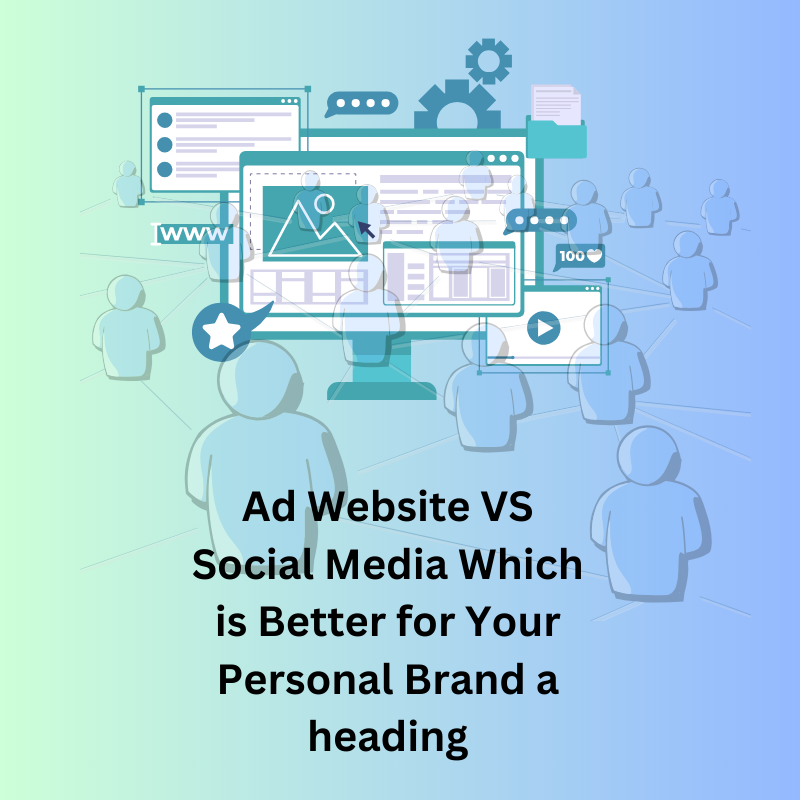
Why is a Website Better Than Social Media?
1. Complete Control
- Customization: A website allows you to fully control the design, content, and functionality. You can create a unique user experience that aligns perfectly with your brand’s identity.
- No Algorithm Restrictions: Unlike social media platforms where algorithms can limit your content’s reach, a website ensures that all your content is accessible to your visitors.
2. Professionalism and Credibility
- Professional Image: A well-designed website enhances your credibility and presents a professional image to your audience. It serves as a digital business card that showcases your expertise and reliability.
- Consistent Branding: A website allows for consistent branding, which is crucial for building trust and recognition.
3. Ownership and Independence
- Content Ownership: You own all the content on your website, giving you full control over how it is used and presented. You are not subject to the terms and conditions of a third-party platform.
- Data Control: You have access to detailed analytics and user data, which you can use to refine your strategies and improve user experience.
4. SEO and Visibility
- Search Engine Optimization (SEO): Websites can be optimized for search engines, helping you attract organic traffic from search results. This can lead to a steady flow of visitors over time.
- Long-Term Visibility: Unlike social media posts, which can quickly get buried in feeds, website content remains accessible and can continue to attract visitors long after it is published.
5. Centralized Information Hub
- Comprehensive Resource: A website can serve as a central hub for all your online activities, including your blog, portfolio, contact information, and links to your social media profiles.
- Organized Content: You can organize your content in a structured and user-friendly manner, making it easy for visitors to find what they’re looking for.
6. Monetization Opportunities
- Direct Sales: You can sell products or services directly through your website, without paying fees to a third-party platform.
- Advertising Revenue: If you generate significant traffic, you can monetize your website through ads, affiliate marketing, or sponsored content.
7. Stable and Long-Term Presence
- Platform Stability: Your website’s presence isn’t affected by changes in social media platforms’ policies or algorithms.
- Sustainable Presence: A website ensures that your online presence is sustainable and less susceptible to the volatility of social media trends.
Conclusion
While social media is excellent for engagement and real-time interaction, a website offers unmatched control, professionalism, and long-term benefits. By integrating both platforms, you can create a robust and dynamic online presence that maximizes your reach and impact.
More from our blog
See all posts
Social Media Optimization (SMO) what is smo in digital marketing is the…
1. Dark Mode Dominance Why It’s Trending: Dark mode reduces eye strain…
Achieving a top how to rank on Google requires a strategic approach…
1. Understand Client Needs and Goals Listen and Learn: Start by understanding…
When it comes to digital marketing, both paid advertising and organic strategies…
Both content marketing and email marketing are powerful tools in a digital…
Conduct keyword research search engine marketing and select a set of keywords…
[easy-share counters=1 counter_pos="inside" native="no" hide_total="yes" fullwidth="yes" fullwidth_fix="100"]
No Comments
Recent Posts
- What is SMO in Digital Marketing? September 27, 2024
- Web Designing Trends 2024: What’s Changing and Why It Matters September 16, 2024
- How to Rank First on Google? September 16, 2024

